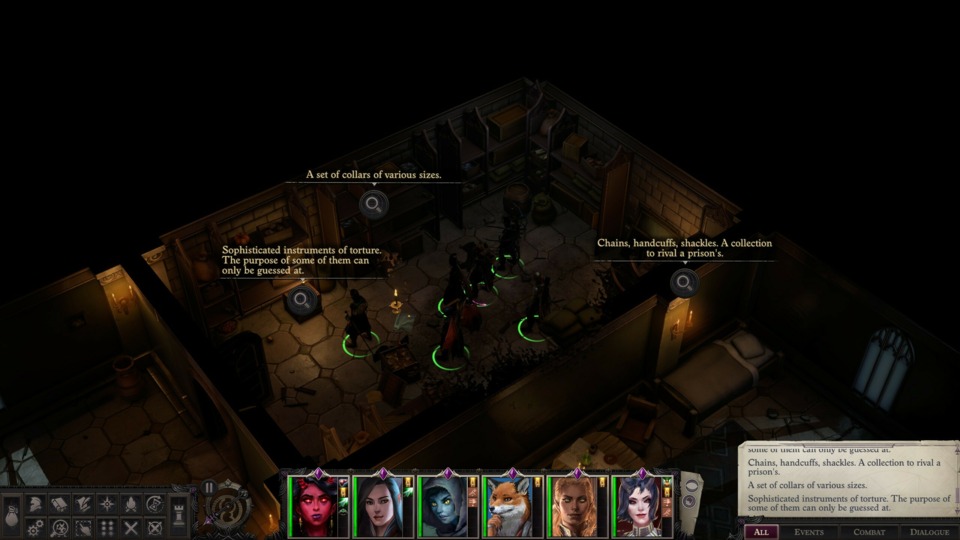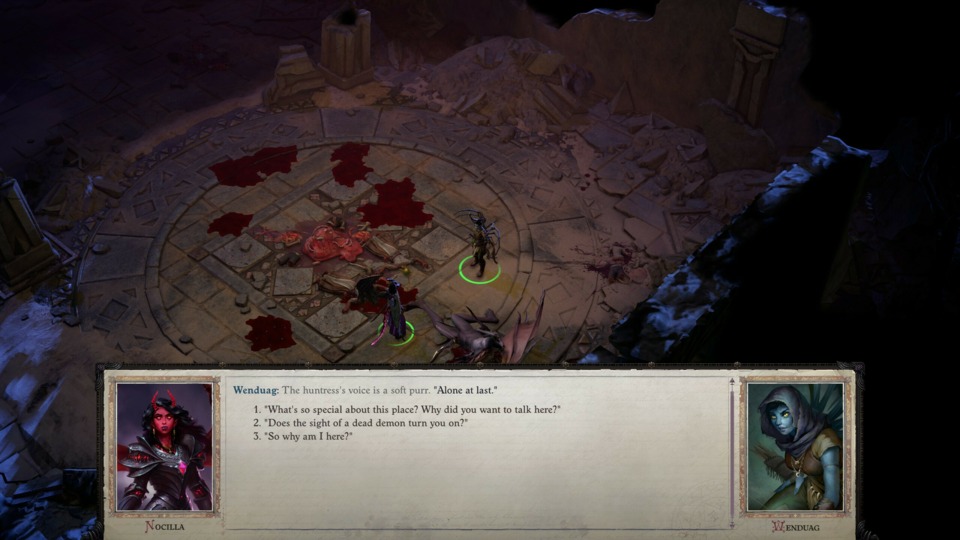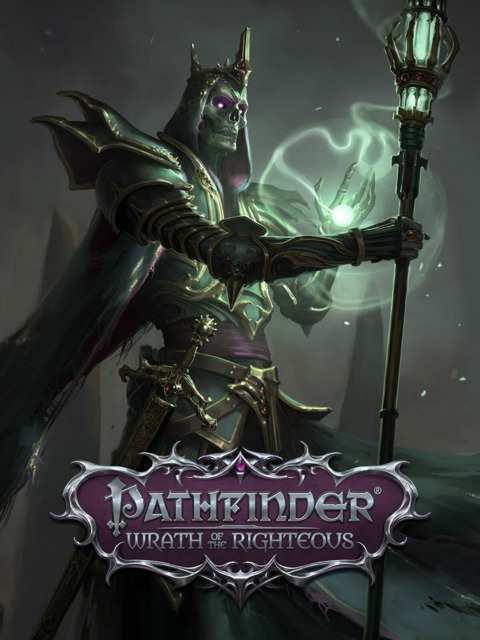SINNER GET READY
I must confess that after some 122 hours I'd have hoped for something other than a lingering melancholy, some other emotions rather than this low key mix of grief and frustration. I thought I had done everything right; all the pieces appeared in place and then, failure, opportunities missed, unforeseen consequences and tragedy left to fester without resolution.
That I was coming off a pretty miserable day before completing Owlcat Games' CRPG behemoth might perhaps explain this cloud of gaming ennui, but I'd like to imagine that it is the result of a genuinely affecting and emotive experience, one that was always going to be anti-climatic by the very fact that it had to end, where the journey is ultimately what counts, with the destination simply the point where every journey must conclude.
As an ever ageing pilgrim of the genre, someone for whom Baldur's Gate and its sequel were transformative titles in their early gaming lives, it's hard to let go sometimes when something reminds you so much of the role-play magic you experienced as a child. Nostalgia? Almost certainly, I miss not feeling so much anxiety and self doubt, but Wrath of the Righteous casts it's own complex spell.

It possesses all the standard CRPG elements with its party based combat, be it real time or turn based, a wide choice of races, classes, with all manner of choices to be made and loot to gather for you and your party. Few games are as generous however, as I don't think I've experienced a game with so many options. It can be hard not to restart over and over to try and find the right setup, but it does offer no end of different approaches in terms of creating your character and how they develop, and boy oh boy how they develop.
The basic plot is straightforward; a huge rift called the Worldwound has linked the fantasy world of Golarion with the Abyss, a chaotic realm of demon lords, many of whom now have their eyes set on slaughter and conquest. After 100 years of slow retreat, the mortal realm sets off on what is set to be the final crusade against the demons, one last shot at driving them back and closing the rift for good.
The story introduces you as a recently wounded crusader, and within short order you find yourself tasked with leading the crusade, in no small part due to your newly manifesting powers, sparking all manner of divine providence in the minds of your fellow crusaders. Ah, but what little do they realise.
Perhaps my favourite part of this narrative arc is in how much scope there is for subverting it or slowly twisting it for your own ends. The nature of your powers and the soul of the crusade itself are all prey to your wishes and the game does an admirable job of allowing for meaningful choices that don't upset the overall direction of the story. You invariably make your way towards the Worldwound with your armies where the fates of you and your companions are therein decided.

Much as it was for me with its predecessor Kingmaker, Wrath of the Righteous takes time with its characters, slowly giving them more nuance and depth as events unfold. Initial impressions of many of them left me with concerns that the writers had perhaps watched far too much anime, but over time this thankfully fell away and instead led to many great moments of affecting drama. The eventual romance I found myself in likewise developed into something quite surprising for how emotionally resonant it was, especially so in light of our first encounters.
The plotting overall seemed fantastic, events all appeared to tie together nicely, building upon each other and where the drama is driven by character motivations rather than events, objects or the modern curse of simply throwing lore at you. Character tensions are ever present and despite some uneven writing standards, the story hooked me and just dug deeper and deeper as it went.
It's perhaps a shame that not every character or line is voiced (the main antagonist is particularly impressive), but where the presentation may come across as somewhat archaic in its heavy leaning towards off-screen reading, this throwback to the choose your own adventure, to where imagination is rewarded, is preferable to badly animated cut-scenes. There are some attempts to give particular events a bit more cinematic flair, but by in large the approach is very much that of the old Infinity Engine games.
The largest criticism I would have, beyond the many bugs and glitches that still persist at time of writing, is in the Crusade and army management. Outside of adventuring you must build and maintain your armies, using them to clear paths to your objective on the world map. Combat takes the form of a turn based battle system somewhat akin to the now moribund Might and Magic series, yet with limited depth that ultimately makes it more of a chore over time, as opposed to a nice added dimension to the experience.

Such issues would be more bearable but for the amount of time needed to adequately manage such things. The option admittedly exists to have this handled automatically, but it also locks you out of the game's secret ending (a bug did as such to me, so be wary if you are intent on seeking it out), which while certainly not a necessity to see, does reward the more perceptive player when it comes to the tragic origins of how all this madness came to be. The long and short of it being that the moment to moment role-playing is where the game is at its best.
That is ultimately where Wrath of the Righteous succeeds so majestically, in allowing you to actually role-play much more than you might otherwise expect, allowing you to make a much wider range of choices as to what you wish to be and making those choices matter to its world and its people. I was engrossed, I was invested, and as a result the end of the adventure had far more impact than is typical for me.
Which brings me back to the start and that sense of melancholy. Suffice it to say that things didn't completely plan out how I would have liked, but in spite of this it always felt like my actions meant something, no matter how small or trivial they might have appeared at the time, and despite my many errors in judgement, there were so many amazing moments that I will treasure as a result. Such is life I guess, but then again life doesn't give you that ever ever tempting 'New Game' button.
